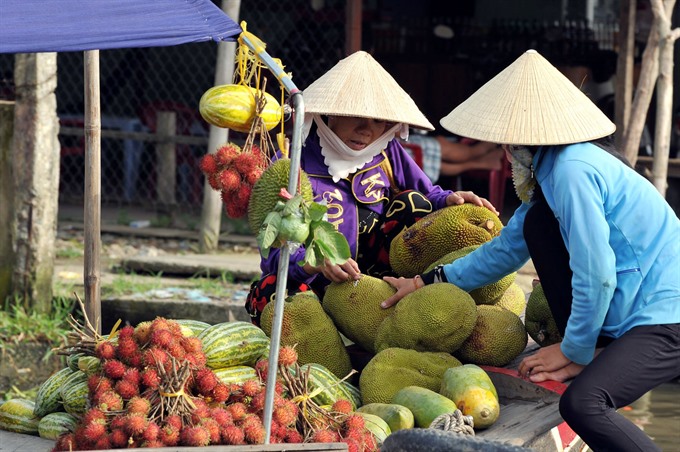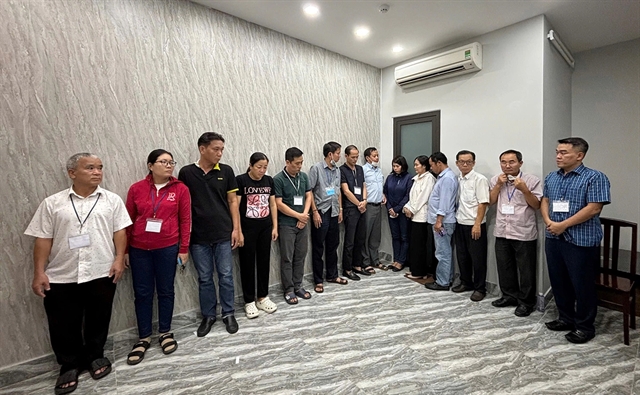 Society
Society

The Mekong Delta is looking for a new model to increase the efficiency of its agricultural production and distribution.
 |
| Fruit sold at a floating market in the Mekong Delta. The delta region has over 307,000 hectares of orchards, which produce 3.5 million tonnes of fruit each year. — VNA/VNS Photo Thanh Hà |
HCM City – The Mekong Delta is looking for a new model to increase the efficiency of its agricultural production and distribution.
Early last year the Government approved a pilot co-operative model for the delta for 2016 -20.
It seeks to have 10 – 15 new co-operatives with a focus on developing infrastructure for cultivation, improving governance, mobilising capital for stronger connectivity and expanding markets.
“Members of the new co-operatives will contribute money and get quality service, savings and good, steady prices,” Deputy Minister of Agriculture and Rural Development Trần Thanh Nam was quoted as saying in Thời báo Kinh doanh (Business Times) newspaper.
According to the chairman of the Việt Nam Co-operatives Union, Võ Kim Cự, the most important task for the region is drafting a master plan for co-operatives based on the strengths of each province.
“Developing a new co-operative model is imperative but output and quality should be improved to compete in the domestic and international markets.
“High-quality human resources and high technology are two very important things to ensure the success of the new model.”
According to statistics from the Crop Production Department, the delta now has over 307,000 hectares of orchards, accounting for 37.5 per cent of the nation’s total area, which produce 3.5 million tonnes of fruits each year.
The provinces of Tiền Giang, Vĩnh Long, Hậu Giang, Sóc Trăng and Bến Tre account for the largest areas of high-value produce like banana, mango, orange, coconut, pomelo, and blue dragon fruit.
Vietnamese fruit exports have been increasing. In 2015 the country exported US$1.8 billion worth to 60 nations and territories, eight times the 2005 figure.
In the first seven months of last year exports surged to $1.4 billion, a 135.5 per cent increase year-on-year.
However, the links between production and distribution remain loose, and farmers are ready to sell their produce to the highest bidder and to move to more lucrative fruits without any long-term strategy.
Authorities have not been competent at market forecast and sale and seed and quality management.
“The biggest challenge for our farmers is selling,” Nguyễn Văn Chiến, director of Thạnh Phước Co-operative in Châu Thành District, Hậu Giang Province, said.
“Our sales mostly depend on private dealers, and so prices are very volatile.”
“We wish to have a strong intermediary organisation that links farmers and enterprises for transfer of green technologies based on VietGap standards to achieve steady sales,” Thái Thùy Linh, owner of a dragon fruit farm in Lương Hòa Lạc Commune in Tiền Giang’s Chợ Gạo District, said. -- VNS




